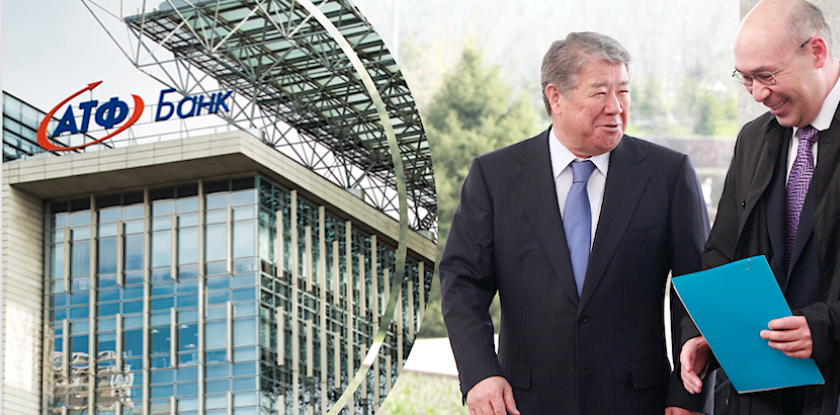A serious struggle related to how to save ATFBank JSC seems to be going on inside Kazakhstan’s most important «family». Or, to be more precise, the struggles of how to save the bank’s majority shareholder Galimzhan Esenov, a son-in-law of Akhmetzhan Esimov, the Chairman of the Management Board of SWF Samruk-Kazyna and Nursultan Nazarbayev’s nephew.
This clearly follows from the announcement that first appeared on the KASE website and then disappeared from it — that the Problem Loans Fund is going to buy ATFBank’s bad assets before the latter will be purchased by First Heartland Jysan Bank.
The thing is that, in this particular case, the use of Kazakhstan’s familiar scheme when the state-owned Problem Loans Fund buys bad loans from troubled financial institutes after which the said loans often end up at the banks belonging to the members of Nursultan Nazarbayev’s family may be quite dangerous.
Not because the state has got no money. And not because the management of the Problem Loans Fund is to oppose the next «milking» of their agency to the benefit of the Elbasy’s relatives. No, the matter lies in the upcoming parliamentary elections.
For the nationwide discontent with the current state of the economy, the problems caused by the pandemic, the low level and quality of life and the absence of the defined future prospects may turn into massive-scale protests at any moment. And these protests may «tear down» Akorda and the Library in a matter of days if hundreds of thousands of people take to streets together. Under these circumstances, the employment of the familiar scheme of using (or rather stealing) the state resources for someone’s private benefit (the scheme that had been employed in the case of BTA Bank JSC, Kazkommertsbank JSC and Tsesnabank JSC) may turn out to be critical.
Nonetheless, judging by the fact that the Government has decided to buy the non-performing assets, someone (perhaps Esimov himself) convinced the Elbasy that his nephew and the nephew’s family needed help.
Moreover, KZ.expert allows for the possibility that the idea to save Galimzhan Esenov via purchasing his ATFBank’s shares may belong to the First President of the Republic of Kazakhstan himself. For Akhmetzhan Esimov, due to his age (he is to turn 70 soon), is likely to leave state service and, therefore, is in need of the funds to meet the vale of years with dignity. Thus, it is quite possible that the purchasing of ATFBank’s shares is a part of Nazarbayev’s nephew’s pension plan.
At the same time, someone (perhaps Nazarbayev’s other close relatives) seems to have convinced the Elbasy that, in this instance, one must either wait or find another way to solve the problem.
Why are we certain that someone from the Elbasy’s close relatives is involved in the matter? Because the access to the First President is very restricted nowadays, therefore, it must have been a private, not official, channel. Apart from that, changing the mind of an 80-year-old man smothered with the sycophants’ and the pro-government propaganda’s kisses to the point of believing in his own chosenness is not an easy matter.
We are not to predict how the events are going to unfold in the future. In our opinion, all kinds of scenarios are feasible. Starting with the purchasing of ATFBank’s bad assets before the latter is bought by First Heartland Jysan Bank and ending with a complete cancelling of the operation.
Nonetheless, Galimzhan Esenov is likely to receive several dozens of millions of dollars or euro. Of course, the price of his portfolio will not be as high as its market value (as of November 20, 2020, it amounted to about 148 $ mln), but it will certainly be higher than those famous 2 tenge paid for Kazkom by Nursultan Nazarbayev’s daughter and son-in-law, Dinara and Timur Kulibayevs.
P.S. By the way, the story of the governmental announcement that the Problem Loans Fund was to buy ATFBank’s bad assets before it would be purchased by First Heartland Jysan Bank was in no way reflected on the bank’s and Fund’s websites. Perhaps they understood how sensitive this subject was or thought that the issue might be re-examined. Therefore, they chose not to rush into publishing press-releases.





